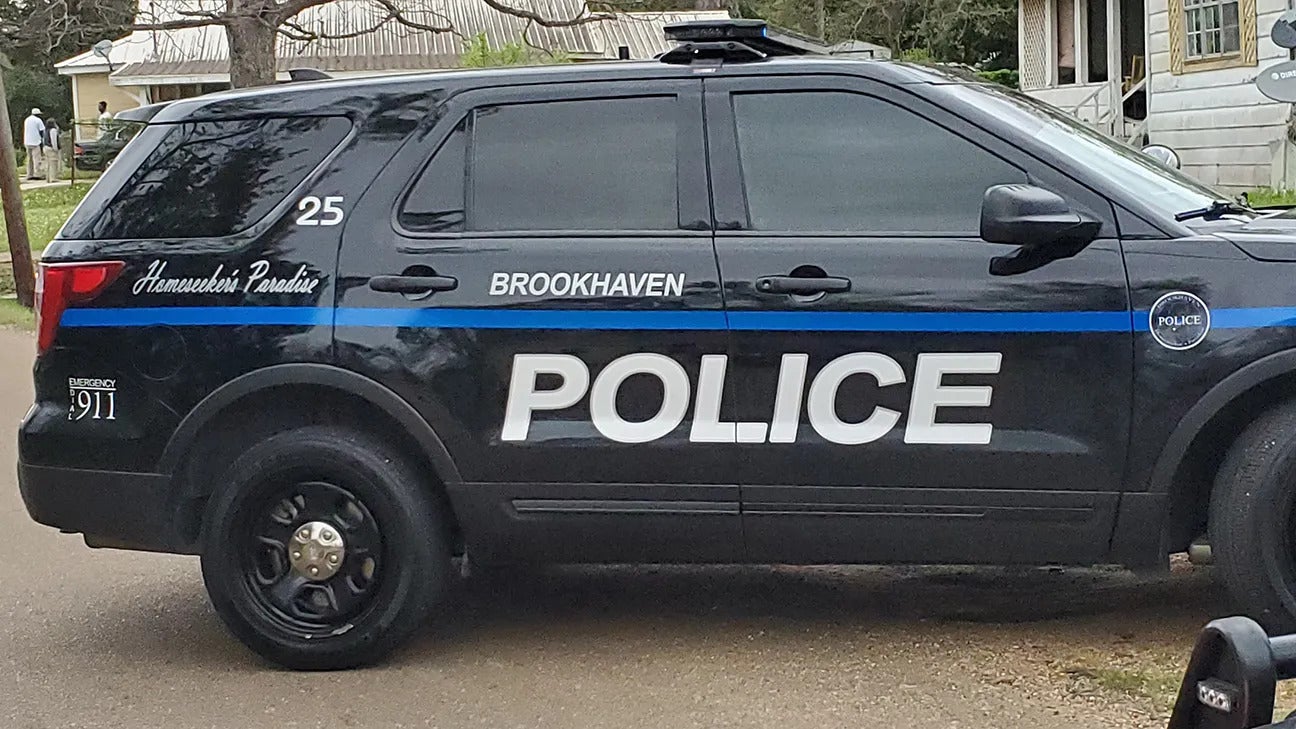Hearing scrutinizes special ed policies — Principal contract dispute continues
Published 11:28 pm Thursday, May 3, 2018
The Brookhaven School District’s adherence to state laws for special needs students was called into question Thursday during the second day of a principal’s contract hearing.
School officials subpoenaed to appear in the hearing for the non-renewal of Brookhaven Elementary School Principal Shelley Riley’s contract revealed the district is skirting Mississippi Department of Education policies. The policies require certification in the use of restraint and seclusion for controlling student behavior, but the district is using short presentations to cram what the state offers in three-day seminars into barely one half-hour of instruction. The district also appears to utilize a liberal approach to awarding good cause exemptions to third-graders who fail the reading gate and a loose approach to maintaining documentation required by the Mississippi Literacy-Based Promotion Act.
“You can’t certify someone in CPI in 30 minutes using a PowerPoint, can you?” asked Lisa Ross, Riley’s defense attorney.
Ross asked the question while cross-examining school district behavioral specialist Anabel Spencer, who is certified by the Crisis Prevention Institute to “train the trainers” and teaches other Brookhaven school officials restraint and seclusion techniques. Spencer testified she led restraint training at Brookhaven Elementary School on Jan. 3, 2017, by presenting a slideshow and reviewing a Q&A during Riley’s planning period for “25 or 30 minutes.” She said a refresher course held Sept. 12 last year was done the same way and may have lasted around 40 minutes.
Spencer also testified she maintained a sign-in sheet for school officials attending her training session and said she did not issue certificates to attendees to show they had completed the course.
But the MDE-approved restraint training by CPI, the district’s preferred vendor, is taught during a three-day course, with a fourth day set aside for “train the trainers” instruction, and the MDE restraint and seclusion copy — which is mirrored in the district’s own policy book — requires “certification for school personnel and recertification as required by the training program.”
“The information was given to the teachers,” Spencer said when Ross asked the question, but after Ross restated the question and demanded an answer, Spencer replied, “no.”
Spencer also testified the district’s restraint training procedures are lacking in proper first aid instruction, which is required under both the MDE and district policies. When shown a copy of the restraint and seclusion policy, she testified it was the first day she had seen it and that she was not familiar with the documentation.
Spencer was called into the hearing as the school’s witness in the case against Riley, who superintendent Ray Carlock says violated conduct and ethics policies last year in a pair of incidents with special needs students at BES. She is accused of an unprofessional confrontation with office staff at Mamie Martin Elementary School concerning her grandson and a scheduling failure at BES that resulted in unrest among parents.
Riley is accused of dragging or pulling a special needs student down the hallway at BES during a behavioral episode in January, and is accused of failing in her duty to protect students in another special needs student meltdown in September, in which she videoed the event with her phone instead of actively participating.
Carlock gave Riley notice her contract would not be renewed, and she is fighting the decision in an open, public hearing, claiming discrimination.
The hearing began Wednesday and has run until 5 p.m. for two consecutive days. Both attorneys involved have prior commitments today and are working to schedule another two days to continue the hearing later this month.
The day began with deputy superintendent Rod Henderson on the stand, and his testimony cast doubt on the district’s obedience to literacy-based promotion policies, which require schools to ensure parents of a student who fails the third-grade reading gate to be “involved throughout the process” when considering the awarding of a good cause exemption.
The parents of the special needs child involved in the September meltdown did not participate in a good cause exemption meeting Henderson attended with Riley and district special services director Brandy Myers. When Ross asked Henderson why the parents did not attend, Henderson said he was “not sure,” adding he did not invite them.
Riley claims Henderson ordered her to attend that meeting and sign off on the student’s good cause exemption under threat of her job after the student’s mother complained to Henderson. She claims she recommended against granting a good cause exemption. Text messages entered into evidence in the case show Myers telling Riley that Henderson told both administrators to be at the district office at 9 a.m. for the meeting, but Henderson said he was just throwing out possible times and did not demand attendance.
Henderson testified he had never seen the child’s intervention plan and had no documentation proving the child met good cause requirements calling for two years of reading intervention, though in later testimony Myers said she had documentation on the student going back to his transferal into the district. When Ross asked why Henderson was involved in the good cause exemption process — final decisions are made by the superintendent after the principal, teachers and parents have discussed the process — he said he was only involved because the student’s parents complained.
The meeting took place in late May last year while Carlock was out of town.
Henderson originally took the stand as the school’s witness to explain his investigation of the dragging incident. He testified he asked for statements from four teachers who witnesses the event and received three. Riley admitted to the incident in a follow-up meeting with Henderson and admitted her actions were inappropriate, Henderson said.
Henderson testified he believes Riley discriminates against special needs students and that it is against the law, but he did not report it.
“Maybe we could have, but I did not,” he said.
Mindi Smith, a special education teacher at Lipsey Middle School who taught at BES last year, followed Henderson on the stand. She testified she intervened in the dragging incident in an attempt to calm the child, one of her students, and said Riley’s actions were inappropriate. She said she reported the incident to her supervisor.
The hearing was closed during cross-examination while Ross questioned Smith about her qualifications. When the boardroom was reopened to the public at the conclusion of cross-examination, Smith left the room in tears.
Ernie Triplett, who teaches PE at BES and is an assistant coach on the high school football and baseball teams, was the next witness to the dragging incident. He said he saw the student clutching the water fountain, “kicking and screaming,” as Riley attempted to pull him off. He said Riley dragged the student 20 yards down the hallway, saying, “get him on the bus, get him on the bus.”
“I said, ‘Mrs. Riley, just let him go. I got him,’” Triplett said.
Ross countered Triplett’s testimony by quoting another witness’ testimony — BES English teacher Marlene Martin — who said the child sat on the floor and refused to move, and that Riley was attempting to help the child to his feet by lifting him under his arms.
Spencer was next on the stand, and she was followed by Mamie Martin preschool director Dawn Fuller, who witnessed Riley’s outburst over her grandchild. Fuller said Riley was angry her grandchild’s father had checked him out of school without her knowledge. She testified she was trying to explain the situation to Riley, who was behaving unprofessionally.
“I would think she would have the courtesy to stop and listen,” Fuller said.
In cross-examination, Ross said Riley was her grandchild’s custodial parent who enrolled the child in school and had a right to know who was checking the child out. Ross then had Fuller admit Riley did not curse or beat on the wall — Alexander Junior High School Principal Patrick Hardy allegedly did so in a similar tirade over his son at Brookhaven High School, and part of Riley’s discrimination claim is that he was treated more gently by the district.
After Fuller’s testimony, the hearing was once again closed so the defense could record a statement by Nancy Love, mother of a special needs child.
Love met with Riley and Ross outside the district office during the lunch break. She said she supported Riley and had no problems with her as principal.
“She’s been great all year,” Love said.
After the break, the hearing resumed with Myers on the stand, and she would sit there for the rest of the day, longer than any other witness called Thursday.
Myers testified she was at BES the day of the videoing incident, but did not witness the child’s meltdown because she was attending scheduled meetings in the building. She later worked with Henderson to investigate the incident and said Riley acted inappropriately. Myers went on to say she believed Riley discriminated against the student by videoing him, though she could point to no district policy against filming the student.
“She should have ensured the safety of all the students and all the staff — she should have stepped in,” Myers said.
Ross’ questioning of Myers over the next few hours would take the hearing deep into special education policies and long-term education planning, and Myers withstood the cross-examination, sidestepping the attorney’s attempts to back her into a corner.
The back-and-forth was testy at times, but Myers was prepared. While previous witnesses responded, “I don’t know,” to numerous questions, Myers was able to absorb complex inquiries and fire back often with answers and counter-explanations. In a hearing that has spent considerable focus at the detail-level of special education policy, Myers is the only witness so far to show up to the table packing documentation on the students in question.
Myers became the first witness to testify that former Mamie Martin principal Rob McCreary spanked the child involved in the videoing incident during his time in that school, and she also said she had never seen McCreary interact with a special needs student during a meltdown.
Ross attacked Myers’ credibility as special education director over the spanking incident, forcing Myers to admit she did not know how often the child was spanked, what he was spanked with and who was present during the punishment. She also said she has not seen the student’s parental consent forms that allow corporal punishment.
Part of Riley’s discrimination case hinges on claims the student’s education plan was not properly formulated before she was punished for her interaction with the child, and that McCreary was promoted to district federal programs director from a poorly-performing school while BES is the district’s second-highest-performing school under her leadership.
Ross accused Myers and the team overseeing a student’s Individualized Education Program for bringing the child back from out-of-school suspension early over Riley’s protests. The student was suspended for 10 days for hitting a teacher on the playground, but Myers said the IEP team suspected the student’s outbursts were a manifestation of autism, so they cut the suspension short.
Riley contends the student was brought back to appease his mother, and that IEP team members claimed his behavior was a manifestation before the child’s manifestation determination was actually made so he could be brought back as soon as possible. Myers said suspecting manifestation of autism is an appropriate response to the student’s behavior.
Ross later had Myers read text messages between herself and Riley showing both administrators discussing possibilities for qualifying a student for a good cause exemption. The messages show Myers stated the student did not qualify for the exemption because the student did not have the necessary two years of reading remediation.
Riley claims she later opposed the exemption, but Myers would go on to change her mind and support it.




